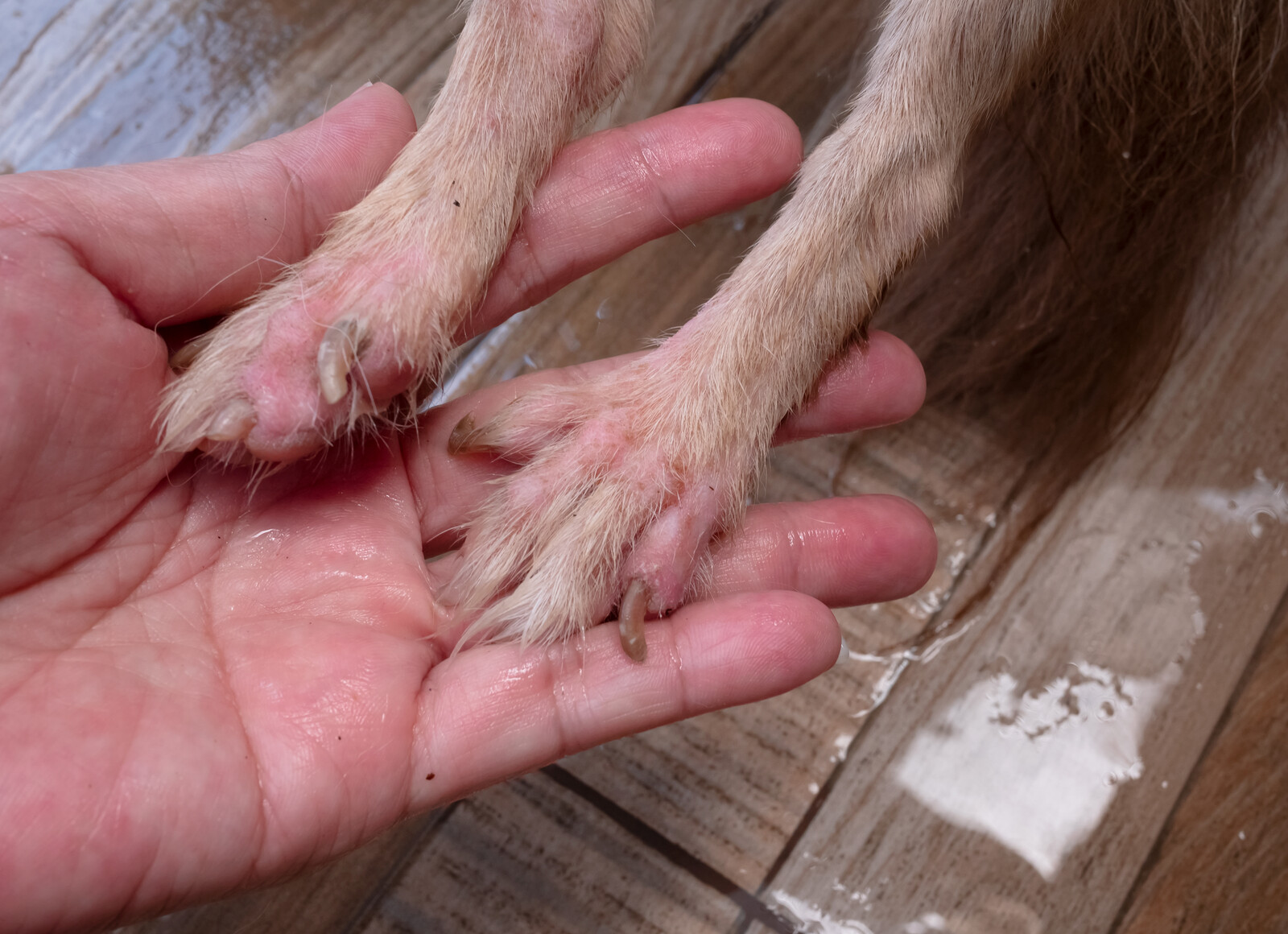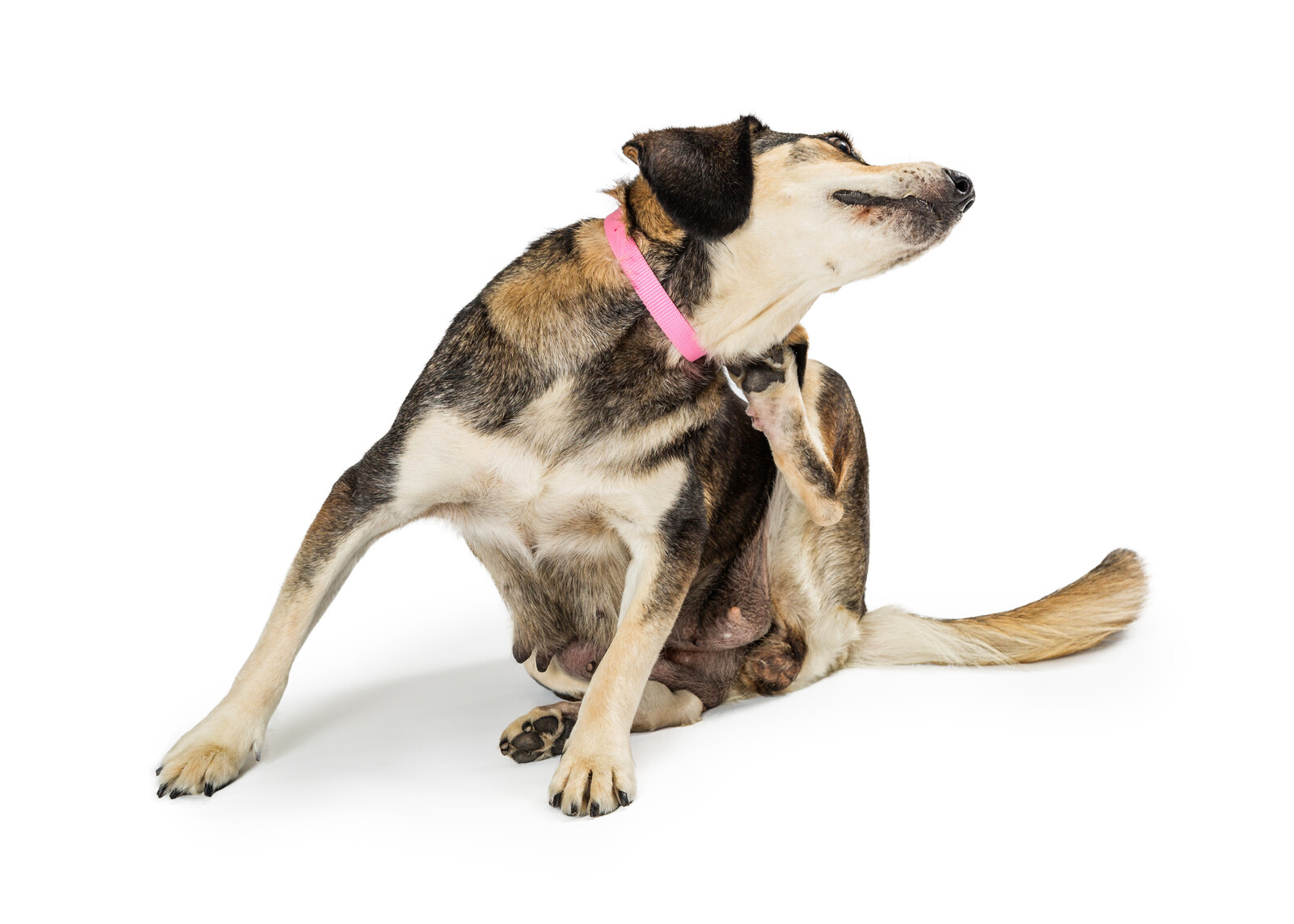Did You Know? … Dogs Can Be Allergy Sufferers Too
Seasonal allergies can affect not only humans but also our beloved furry friends. Just like we may experience sneezing, itchy eyes, and other uncomfortable symptoms during certain times of the year, dogs can also suffer from seasonal allergies. These allergies are typically triggered by environmental factors such as pollen, mould spores, and other allergens. Recognizing the signs, understanding the causes, and exploring appropriate treatment options are crucial for providing them with the necessary care and treatment to ensure your dogs’ comfort and well-being.
In this discussion, let’s explore the signs of seasonal allergies in dogs, the common triggers, and the available treatment options to help our furry friends find relief and live comfortably throughout the year.
Remember, it’s important to consult with a veterinarian to accurately diagnose and treat your dog.
Five Signs That Your Dog May Be Experiencing Seasonal Allergies
When dogs experience seasonal allergies, they may exhibit several signs that indicate an allergic reaction.
Here are five signs that your dog may be experiencing seasonal allergies:

1. Scratching Could Be A Sign of Allergies
-
Excessive itching
If your dog is constantly scratching, licking, or chewing their skin, it could be a sign of seasonal allergies. Pay attention to areas like the paws, face, belly, and ears, as these are often the most affected.
-
Red and inflamed skin
Allergic reactions can cause your dog’s skin to become red, irritated, and inflamed. You may notice rashes, hot spots, or hives on their body, which could indicate an allergic response.
-
Frequent sneezing and coughing
Just like humans, dogs with seasonal allergies may exhibit sneezing fits or coughing episodes. If these symptoms appear during specific seasons, it could be a sign of allergies triggered by environmental factors.
-
Watery and itchy eyes
Allergic reactions can also affect your dog’s eyes. If you notice excessive tearing, redness, swelling, mucky stuff at the corner of their eyes, or your dog rubbing their eyes frequently. It could be a result of seasonal allergies.

2. Red and inflamed skin could be an allergic reaction
-
Behavioural changes
Dogs suffering from allergies may display behavioural changes due to discomfort and irritation. They may become restless, have difficulty sleeping, or exhibit signs of discomfort such as pacing or excessive grooming.
Causes of Seasonal Allergies in Dogs
It’s important to note that while certain seasons are associated with specific allergens, dogs can develop allergies to a variety of substances at any time of the year. In addition, these signs can also be indicative of other health issues.
Seasonal allergies in dogs are typically triggered by environmental allergens. Spring and summer often bring about allergies caused by outdoor allergens such as pollen from plants, grasses, trees, and flowers. Fall may introduce allergens like ragweed and mould spores. In winter, dogs can still experience indoor allergies triggered by dust mites, mould, or other indoor allergens.
If your dog is showing signs of allergies, it’s best to consult with a veterinarian who can determine the specific allergens affecting your dog and provide appropriate treatment options.
Treatment Options for Your Dog’s Seasonal Allergies

Excessive Scratching
Here are five common treatment options for seasonal allergies in dogs. Remember to consult with a veterinarian to determine the most suitable treatment plan for your dog:
-
Antihistamines
Antihistamines are commonly used to alleviate the symptoms of seasonal allergies in dogs. These medications can help reduce itching, sneezing, and other allergic reactions by blocking the effects of histamine. However, not all antihistamines are safe for dogs, so it’s crucial to consult with a vet to determine the appropriate dosage and type of antihistamines for your dog.
-
Steroids
In more severe cases, veterinarians may prescribe corticosteroids to provide fast and effective relief from allergic symptoms. Steroids help reduce inflammation and suppress the immune response. However, long-term use of steroids may have side effects, so they are typically used for short periods or in specific situations.
-
Immunotherapy
Also known as allergy shots, immunotherapy is a long-term treatment option that involves injecting small amounts of allergens into the dog’s body. Over time, this helps the dog’s immune system build tolerance to the allergens, reducing the severity of allergic reactions. Immunotherapy is a customized treatment plan designed based on specific allergen testing for each dog.
-
Topical Treatments
Various topical treatments, such as medicated shampoos or sprays, can provide relief for dogs with itchy or irritated skin caused by seasonal allergies. These products may contain ingredients like oatmeal or hydrocortisone, which can help soothe the skin and reduce inflammation. Always follow the usage instructions provided by your veterinarian.
-
Environmental Management
Managing your dog’s environment can help minimize exposure to allergens. Regularly cleaning and vacuuming your home, using air purifiers, and keeping your dog’s bedding clean can help reduce the presence of allergens. Additionally, avoiding walks during peak pollen times and wiping down your dog’s paws after being outside can limit their exposure to outdoor allergens.
It’s important to note that these treatment options are general guidelines, and the most effective approach may vary depending on your dog’s specific condition. Your veterinarian will provide a proper diagnosis and recommend the most appropriate treatment plan for your dog’s individual needs.
Pollen and mould could contribute to allergies
Conclusion
Seasonal allergies can be a source of discomfort for your canine companion. By recognizing the signs, understanding the causes, and exploring the available treatment options, you can provide relief and ensure your dogs’ well-being. However, it’s essential to consult with a veterinarian for an accurate diagnosis and to develop a tailored treatment plan that suits your dog’s specific needs. With proper care and attention, you can help your furry friends navigate seasonal allergies and enjoy a more comfortable and happy life throughout the year.
For real-world training tips and daily adventures with your dog be sure to follow us on Instagram @karenlawslive. Click here to follow us on Facebook and remember to subscribe to our YouTube Channel!!
